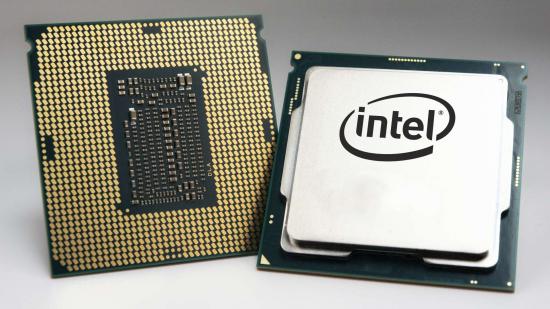Things are looking increasingly desperate for Intel on the processor front. With upstart AMD set to announce the world’s first 16-core, 32-thread gaming processor tomorrow – the Ryzen 9 3950X – rumours are floating around which suggest Intel’s 10-core Comet Lake response will be hobbled by having HyperThreading disabled. And the speculation seems to be pointing to the security vulnerabilities inherent to the Intel CPU design as the reason for it.
It was already looking a little sketchy given that Intel was releasing its updated gaming CPU range with yet another spin of the existing 14nm Core architecture, not the speedier 10nm Ice Lake Sunny Cove cores with their 18% higher IPC rating. With AMD working at 7nm for its new gaming chips, with their own instructions per clock bump, and far greater number of cores, the latest rumours put Intel even further on the back foot.
Now, it has to be said that these are just rumours at the moment, spun out from a few classic Twitter leakers and a machine translated post on a Japanese website, but if they’re true then you can see why Intel would be getting increasingly defensive over the Intel vs AMD ‘real world gaming’ performance of its processors versus straight Cinebench testing.
The story on Ascii.jp (via @Momomo_US) paints the picture of a Comet Lake CPU launch at 14nm where the top chip in the new range is a 10-core processor with HyperThreading disabled. To make matters worse the release date is still languishing in 2020, meaning that Intel will be very late to the desktop CPU party and isn’t going to be bringing anything to contribute apart from some cheap silicon wine few gamers would find palatable.
Certainly not the fine wine that AMD has become known for… Classic AMD bants for you there. Here all week, try the fish, etc.
Chip shot: These are the best CPUs for gaming right now
The story goes on to suggest that HT has been disabled for the parts because of various vulnerabilities associated with the technology. Recently the Zombieload security exploit has only been shown to be completely fixed with Intel’s HyperThreading turned off, and that any architectural mitigation is too difficult to implement at this stage.
“We conclude that disabling HyperThreading, in addition to flushing several microarchitectural states during context switches, is the only possible workaround to prevent this extremely powerful attack,” a research paper describing the Zombieload flaw, authored by researchers at Graz University of Technology, Cyberus Technology, Worcester Polytechnic Institute, and KU Leuven, says.
But hey, maybe the resolutely deca-core Comet Lake chip will be a fantastic chip, able to outstrip even a 16-core, 32-thread Ryzen 9 3950X in gaming tests. But we might have a bit of a wait to find out if that is indeed the case…
Join in the conversation and comment on the Comet Lake rumours via this article’s Facebook and Twitter posts.

